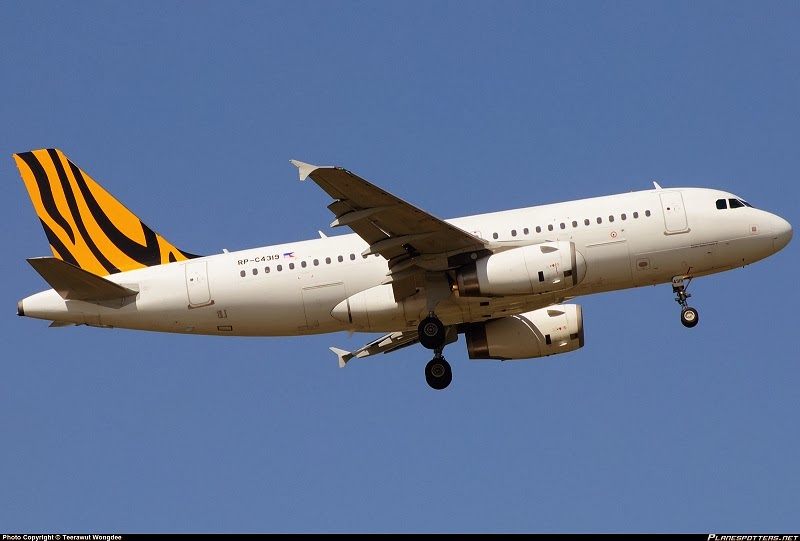Cebu Pacific-Tiger Air Deal Poses Risk to Competition
A new report released by the Centre for Asia-Pacific Aviation suggests that a Cebu Pacific purchase of rival budget carrier Tigerair Philippines could post a threat to competition in the domestic aviation sector of the Philippines.
 |
| Copyright Photo: Teerawut Wongdee/Planespotters.net |
According to CAPA, while the possible buy-out would have limited influence on the international travel market, the deal could have a significantly higher impact on competition in the domestic market especially in Manila. "A Cebu Pacific takeover of Tigerair Philippines could be seen as a defensive move to prevent another airline group from making a move," CAPA said in the report.
The report highlighted the significance of the possible slot acquisition by Cebu Pacific as it would increase the airline's share of slots in Manila to nearly 38 percent. That would put it ahead of Philippine Airlines and PAL Express that hold a current combined share of 35 percent of all slots at the congested Ninoy Aquino International Airport. Cebu Pacific currently holds just 34.6 percent of slots while Tigerair Philippines maintains a 4 percent share. Cebu Pacific may use the additional slots to expand its leading share of the domestic market or fuel further international expansion.
The report highlighted the significance of the possible slot acquisition by Cebu Pacific as it would increase the airline's share of slots in Manila to nearly 38 percent. That would put it ahead of Philippine Airlines and PAL Express that hold a current combined share of 35 percent of all slots at the congested Ninoy Aquino International Airport. Cebu Pacific currently holds just 34.6 percent of slots while Tigerair Philippines maintains a 4 percent share. Cebu Pacific may use the additional slots to expand its leading share of the domestic market or fuel further international expansion.
The Centre for Asia Pacific Aviation has long been an advocate of consolidation in the Philippine aviation market citing that the incredibly high number of budget carriers competing in the market was leading to irrational pricing and competition that was undermining any hopes of profits or sustainable operations. CAPA believes that the possible buy-out is a "smart, strategic move" by Cebu Pacific that could stand to benefit in a number of ways. The report suggests that three main competitors, along with several smaller regional carriers is likely sufficient for the current size of the Philippine market.
However, the report also urged local aviation authorities in the Philippines to ensure that the industry remained open to new entrants as slots will be dominated by the three major carriers left in the country including Philippine Airlines, AirAsia Zest, and Cebu Pacific.
"Philippine authorities however should think carefully and leave the door open for potential new entrants. As more slots at Manila become available in future, rules can be put in place to give priority to new entrants," CAPA said. "Three strong domestic players should provide sufficient competition for the short to medium term but providing at least an opportunity at the main airport for new competition would improve the prospects for growth over the long term."







No comments